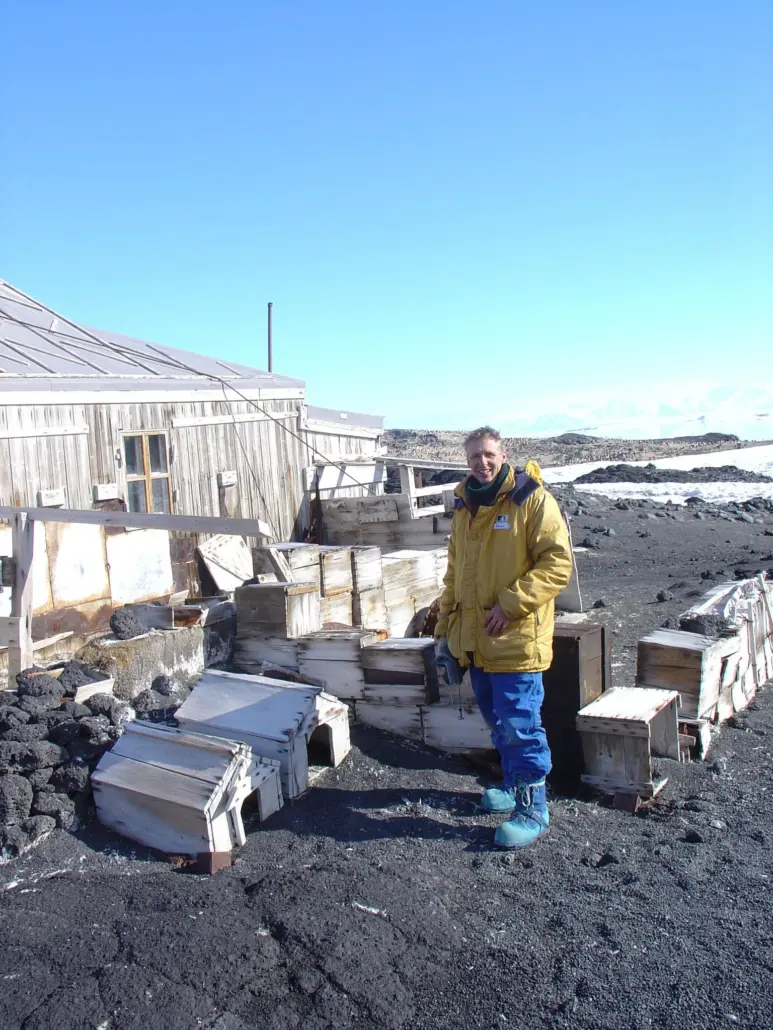Conservation Plans Enter New Phase
The Ross Sea Heritage Restoration Project (RSHRP), the world’s largest and longest-running cold climate conservation programme, has been running for over 21 years. During this time, four of the five historic explorer bases under the Trust’s care have undergone the initial stage of conservation making them weather tight and structurally sound, along with the conservation of the large collection of approximately 20,000 items left behind by the explorers. The last remaining site to undergo its initial conservation is Carsten Borchgrevink’s 1899–1900 expedition base at Cape Adare – the most remote and logistically challenging of all the sites.
A key factor in the programme’s success has been the development of individual Conservation Management Plans (CMPs) for each explorer base. These CMPs, created in 2004 by a team led by eminent heritage architect and long-term Trust supporter Chris Cochrane, in collaboration with experts from New Zealand and Australia, have undergone international peer review. The CMPs have proven to be robust over time, however with the completion of the initial major conservation works, they now need to be updated to guide the ongoing maintenance and conservation required to preserve the bases for future generations.
Julian Bickersteth of International Conservation Services (ICS) in Sydney, who was part of the original team that wrote the CMPs twenty years ago, commented on the current rewriting process, “What began as a ‘refreshment’ of the CMPs at a workshop in Christchurch in March 2023 has evolved into a comprehensive rewrite. The aim is to capture a complete record of the work undertaken and develop policies that effectively guide and inform future conservation efforts.”
Fiona Tennant, also from ICS, is leading the editing process alongside Julian. Fiona says, “The challenge has been to capture the complexities of the work undertaken and ensure that these documents are fit for purpose for the care of the bases moving forward. We are confident that the end result will be another example of best practice in the care of cultural heritage, consistent with the high standards the RSHRP has demonstrated in all its work to date.”
The Trust eagerly anticipates sharing the finalised CMPs with the wider conservation community, Trust supporters and the public once the comprehensive rewriting process is complete.




